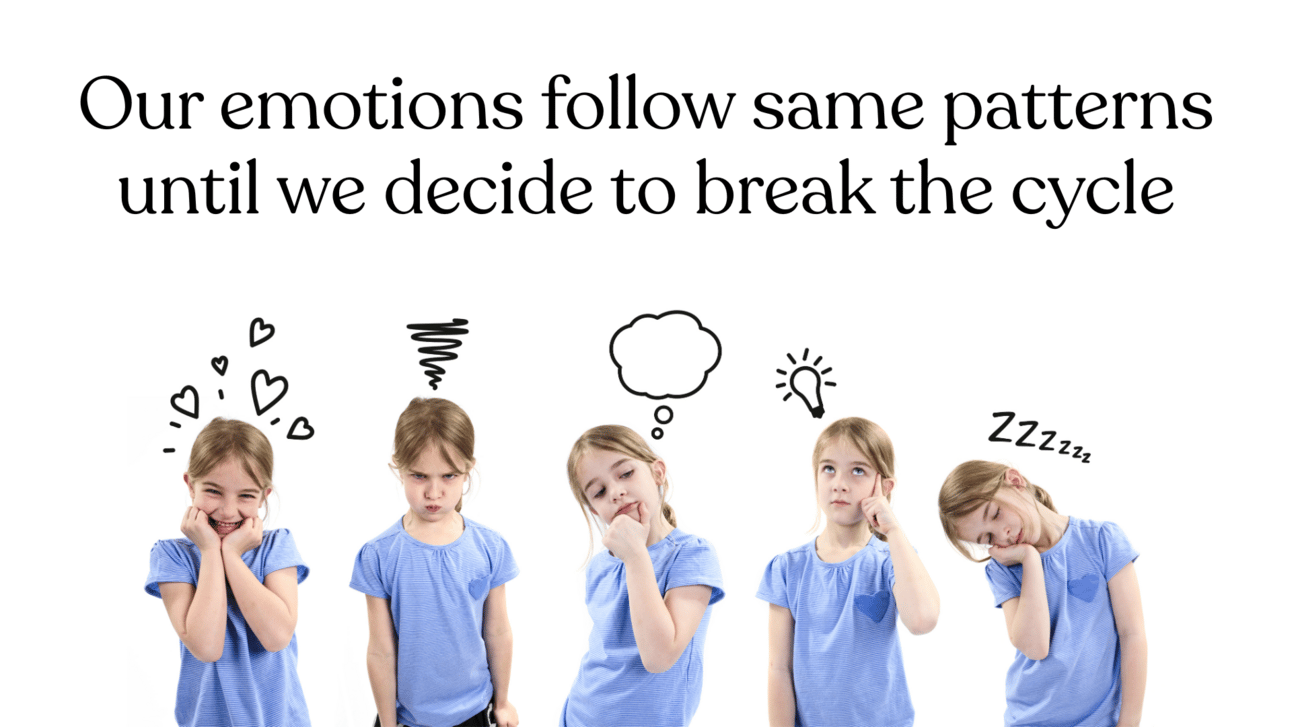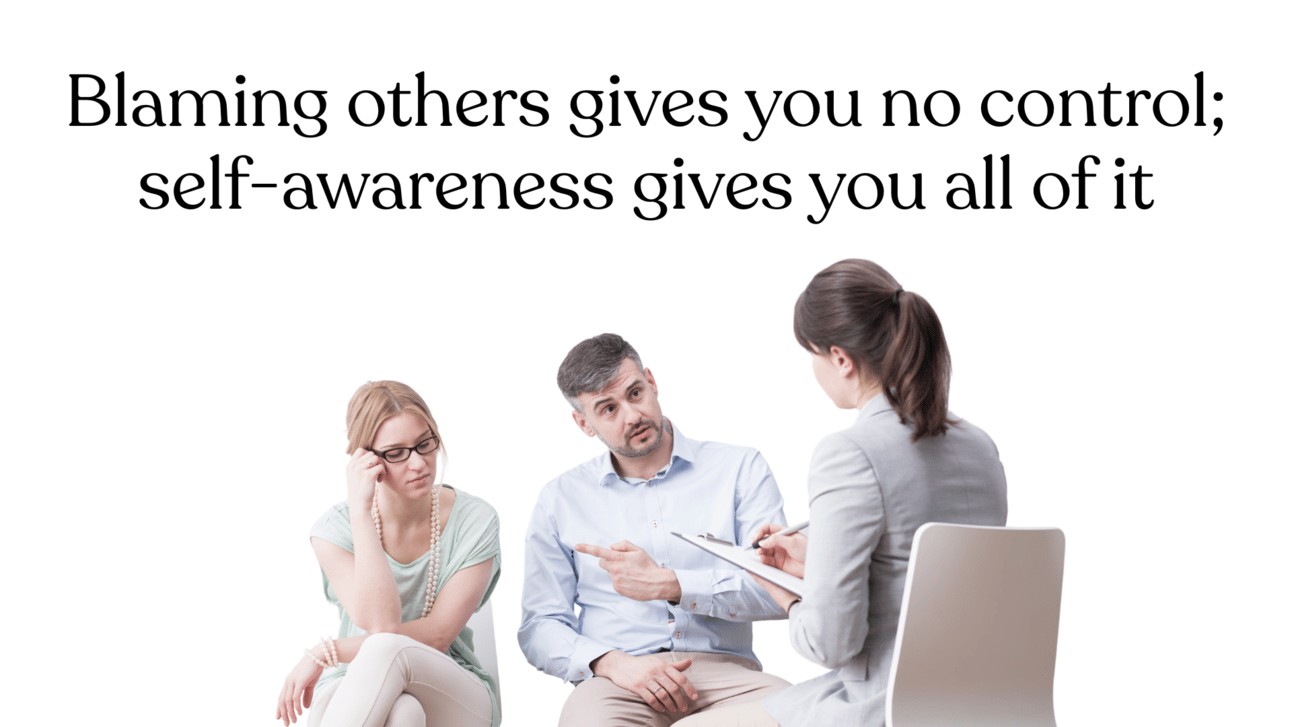Welcome to Wisdom & Sol! If you haven’t subscribed, join our community of 55,395 intelligent, curious folks who want to boost their emotional well-being by subscribing here.
Life throws a lot at you, creating a mixture of reactions that include anxiety, anger, frustration, joy and sadness. The feelings you express aren’t random, either—they follow emotional patterns you've built over time.
You might notice you always have the same reaction to certain people's behaviors. Maybe you have a colleague that interrupts you mid-sentence in every single meeting, and each time it happens you feel a familiar surge of anger and want to yell, "Let me finish my sentence at least." Or perhaps you have a friend who always shows up 40 minutes late. Every time you end up standing around fuming at their chronic tardiness and feeling disrespected and frustrated.
Here's what's happening: People have their patterns (interrupting, being late), and you have yours (getting angry, feeling ignored, pacing with frustration). Like clockwork, their behavior triggers your emotional pattern. The problem is, if you’re spending all your energy trying to change their pattern, yours will quietly erode your peace of mind.

Why Blaming Others Doesn't Work
When something sets you off, it's tempting to point fingers. “Why can't they just let me finish speaking?” or “They have no respect for other people's time.” But here's what you need to remember: You’re trying to control their behavior, while your own reaction is what’s making you miserable.
You can't force someone to stop being late all the time, and you can't make your colleague stop interrupting, but you can stop letting their behavior hijack your emotional state.
The real question shouldn’t be “Why are they like this?” but “Why does this trigger me so much, and what am I going to do about it?”

Patterns That Make or Break You in a Crisis
Each of us has patterns that drag us down and others that lift us up. When we face a crisis (like a health scare or financial strain) those patterns don’t disappear; they amplify. If you've cultivated a habit of being centered in chaos, you'll remain calm even when someone's pushing your buttons. But if you're prone to taking everything personally, even a little criticism will feel like major attacks on your identity.
How to Spot Your Patterns
Here’s a simple way to figure it out your reaction patterns:
For one week, jot down moments when your emotions spike, whether they’re good or bad.
Write two things:
What happened?
How did I react?
Example: “My mom criticized my life choices again” → “Felt defensive and hurt, then spent the rest of the day proving to myself why she's wrong”
Or: “My friend cancelled plans last minute again” → “Felt dismissed and unimportant, started questioning if they even value our friendship”
After a few days, look for repeats.
Do you always feel attacked when someone gives you advice? Does your mood tank when people don’t respond the way you expected?
You can’t change what you don’t notice, and seeing these patterns is like switching on a light in the dark.
Shifting Your Patterns
Once you identify a pattern, you can tweak it and find a realistic, repeatable alternative. This is not about eliminating frustration entirely but about gaining control through small, intentional choices.
Instead of getting annoyed when your perpetually late friend keeps you waiting, you might start bringing a book or decide to arrive 20 minutes after the agreed time. When someone flakes on plans, you have to recognize it as their pattern—not a personal rejection—and adjust your expectations.
This takes practice, and patterns don't vanish overnight. But each time you view other people’s actions as their habits, not personal attacks, you’re cultivating a stronger, more adaptive mindset.
Taking Control Feels Good
When you stop pointing fingers at other people for your emotions, you reclaim your power. It doesn’t mean you’re excusing their behavior or ignoring its impact. Instead, it’s a sign that you’ve realized that obsessing over the other person’s patterns while ignoring your own leads nowhere. Instead, focus on what’s in your control: your response. That shift can turn reactive spirals into grounded clarity.
Help us make this newsletter even better for you! Was this issue useful? What would you be excited to read about next? Reply to this email with your thoughts and suggestions. We read every response!
Want More: Tools to Regulate Emotions
This Edition’s Sponsor: The Rundown AI
Learn AI in 5 minutes a day
What’s the secret to staying ahead of the curve in the world of AI? Information. Luckily, you can join 1,000,000+ early adopters reading The Rundown AI — the free newsletter that makes you smarter on AI with just a 5-minute read per day.
Along the Same Lines…
We love you,
Mona & The Sol TV Team ❤️
Lastly, some housekeeping…
If you can't find the newsletter, check your spam folder. If it’s there, mark it as “not spam.”
Whitelist our email. Add our email address [email protected] to your contacts listor your Primary inbox in Gmail.


